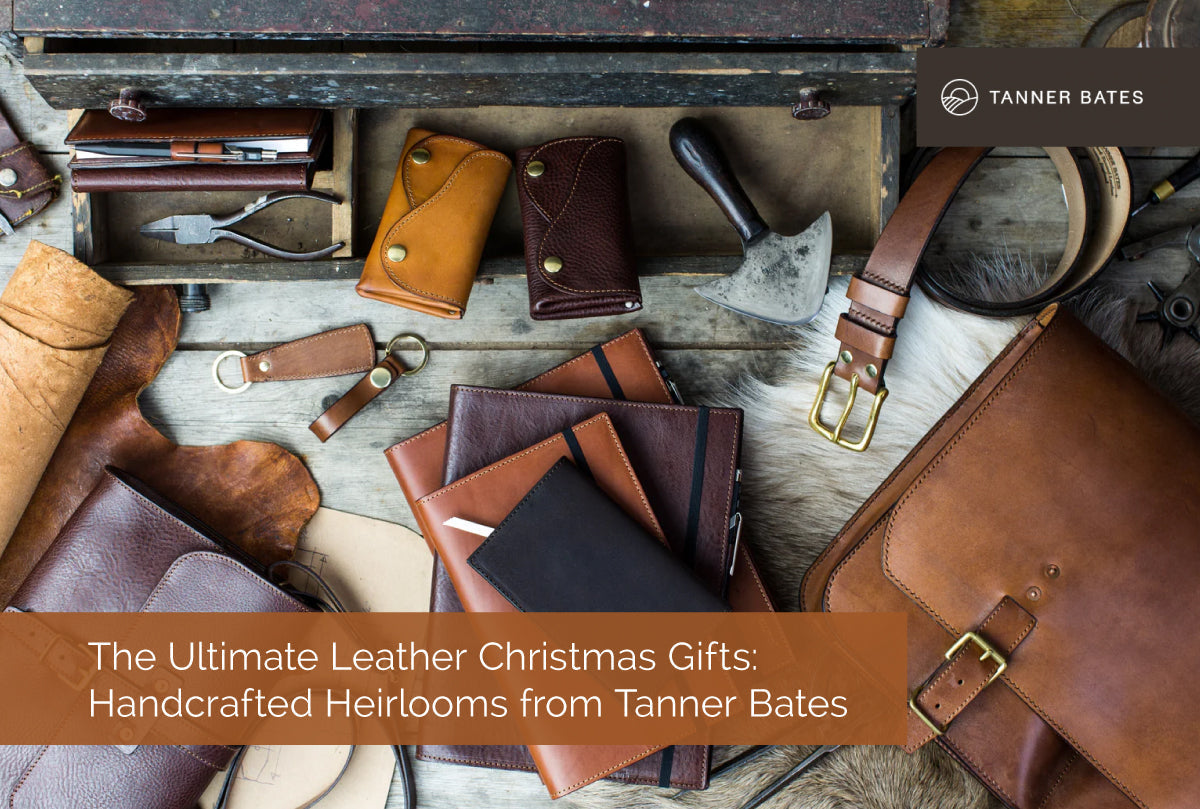
Wood & Leather: A Timeless Partnership in Craft
From Medieval Chests to Modern Interiors

Shared Traits: Aging Gracefully
Patina & Grain
Touch & Warmth

Responsiveness to Care

Keeping Handmade Crafts Alive

Parallels Between Tanner Bates & Crystal Woods
Material integrity: Just as Tanner Bates selects premium hides, steering clear of mass-processed leather, we choose oak with clear, open grain and slow-grown character.
Commitment to longevity: A leather belt, wallet, or messenger bag from Tanner Bates is made to be carried for years. In our workshop, we craft oak wine racks, wooden gifts, and oak structures meant to endure, growing more beautiful with age.
Character through use: A Tanner Bates leather piece gains soul with every bend and brush. Similarly, a Crystal Woods oak creation acquires stories in the shifts of its grain, the soft dents of daily life, and the mellowing of finish.

Care Rituals: Keeping Them Beautiful
For Wood (especially oak):
Dust with a soft cloth; avoid abrasives and harsh chemicals.
Use a light wax or oil occasionally to nourish the surface.
Keep away from prolonged dampness or direct, harsh sunlight.
For Leather:
Clean with a soft, dry cloth; use a gentle natural cleaner when needed.
Condition sparingly with high-quality natural balm to maintain suppleness.
Avoid sharp bending, excessive water exposure, or overly dry storage.


Frequently asked questions about: Wood & Leather Craft
Why are wood and leather often used together in design?
What makes handmade wood and leather items different from factory-made alternatives?
Do wood and leather come from sustainable sources today?
Can wood and leather be repaired if they get damaged?
Why do wood and leather improve with age?
How can I tell if a wood or leather item is genuinely handmade?
What are some classic examples of wood and leather being used together?
Why is supporting handmade craft important today?
Leave a comment
Comments will be approved before showing up.
Also in News

Luxury Leather Bags: Find the Perfect Leather Bag Gift at Tanner Bates
At Tanner Bates, every leather bag we make begins as naturally tanned leather in our Devon workshop and leaves as a lifelong companion, hand-cut, some bags are saddle-stitched, edges are burnished and finished with time-honoured craftsmanship. These are bags made using traditional techniques, full-grain hides, solid brass hardware and an attention to detail you simply can’t rush.

The Ultimate Leather Christmas Gifts: Handcrafted Heirlooms from Tanner Bates
When it comes to Christmas gifts, few things feel more personal, or more enduring, than leather. Forget the mass-produced, the plastic, the passing trends. Real, hand-stitched leather is a material that tells a story, softens with time, and becomes part of someone’s life.

Boutique Hotels in Devon: The Insider’s Guide to the Most Charming Stays
You’re seeking that perfect escape, somewhere that captures your heart the moment you arrive. Devon’s picturesque countryside and stunning coastline deliver exactly that magic. Golden sandy beaches, dramatic moorland that takes your breath away in places like Exmoor National Park. Those picture-perfect seaside towns you see on postcards, they’re real, and they’re here.
